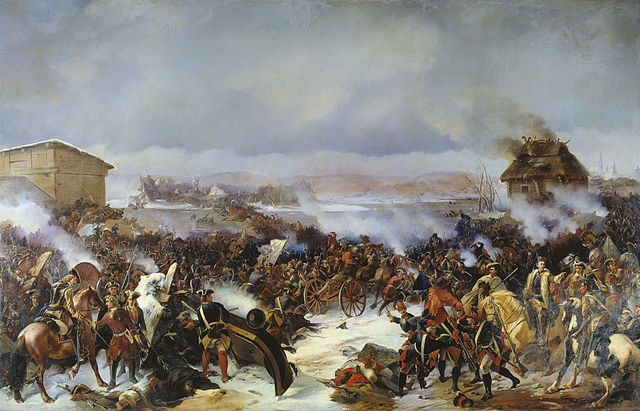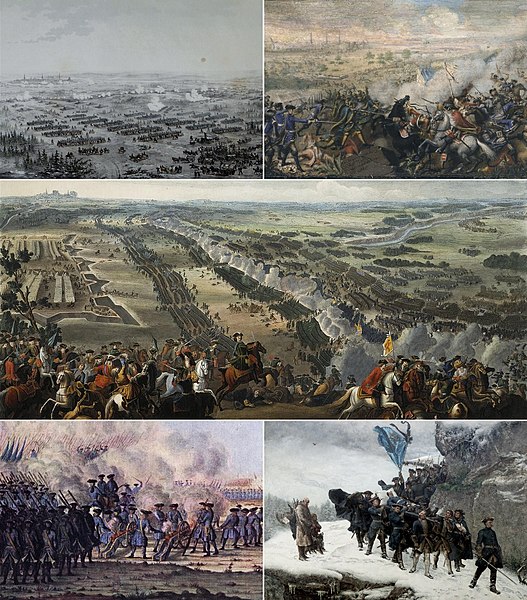The Battle of Narva on 30 November [O.S. 19 November] 1700 was an early battle in the Great Northern War. A Swedish relief army under Charles XII of Sweden defeated a Russian siege force three to four times its size. Previously, Charles XII had forced Denmark–Norway to sign the Treaty of Travendal. Narva was not followed by further advances of the Swedish army into Russia; instead, Charles XII turned southward to expel August the Strong from Livonia and Poland-Lithuania. Tsar Peter the Great of Russia took Narva in a second battle in 1704.
The Battle of Narva by Alexander Kotzebue
Russian memorial near Narva
Swedish Lion Monument in Narva
Russian force surrendering to Charles
The Great Northern War (1700–1721) was a conflict in which a coalition led by the Tsardom of Russia successfully contested the supremacy of the Swedish Empire in Northern, Central and Eastern Europe. The initial leaders of the anti-Swedish alliance were Peter I of Russia, Frederick IV of Denmark–Norway and Augustus II the Strong of Saxony–Poland–Lithuania. Frederick IV and Augustus II were defeated by Sweden, under Charles XII, and forced out of the alliance in 1700 and 1706 respectively, but rejoined it in 1709 after the defeat of Charles XII at the Battle of Poltava. George I of Great Britain and the Electorate of Hanover joined the coalition in 1714 for Hanover and in 1717 for Britain, and Frederick William I of Brandenburg-Prussia joined it in 1715.
From left to right: Battle of Narva (1700) Charles XII crossing the Düna (1701) Peter I at the Battle of Poltava (1709) Battle of Gadebusch (1712) Bringing Home the Body of King Charles XII (1718)
The bombardment of Copenhagen, 1700
Battle of Riga, the first major battle of the Swedish invasion of Poland, 1701
Battle of Gangut (Hanko)








